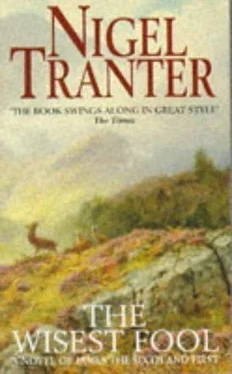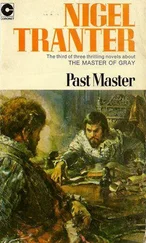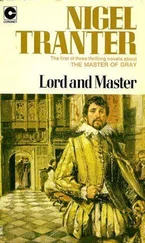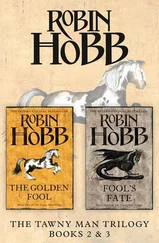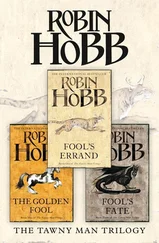Nigel Tranter - The Wisest Fool
Здесь есть возможность читать онлайн «Nigel Tranter - The Wisest Fool» весь текст электронной книги совершенно бесплатно (целиком полную версию без сокращений). В некоторых случаях можно слушать аудио, скачать через торрент в формате fb2 и присутствует краткое содержание. Жанр: Исторические приключения, на английском языке. Описание произведения, (предисловие) а так же отзывы посетителей доступны на портале библиотеки ЛибКат.
- Название:The Wisest Fool
- Автор:
- Жанр:
- Год:неизвестен
- ISBN:нет данных
- Рейтинг книги:4 / 5. Голосов: 1
-
Избранное:Добавить в избранное
- Отзывы:
-
Ваша оценка:
- 80
- 1
- 2
- 3
- 4
- 5
The Wisest Fool: краткое содержание, описание и аннотация
Предлагаем к чтению аннотацию, описание, краткое содержание или предисловие (зависит от того, что написал сам автор книги «The Wisest Fool»). Если вы не нашли необходимую информацию о книге — напишите в комментариях, мы постараемся отыскать её.
The Wisest Fool — читать онлайн бесплатно полную книгу (весь текст) целиком
Ниже представлен текст книги, разбитый по страницам. Система сохранения места последней прочитанной страницы, позволяет с удобством читать онлайн бесплатно книгу «The Wisest Fool», без необходимости каждый раз заново искать на чём Вы остановились. Поставьте закладку, и сможете в любой момент перейти на страницу, на которой закончили чтение.
Интервал:
Закладка:
The Great Hall of Hampton Court, with its mighty extent and hammer-beam roof, made an ideal setting for a play-acting, for the accoustics were good, a minstrels' gallery above the stage, with dual stairways there to add dimension and allow for variety of movement. Such was the size of the place that many more could be accommodated than at the Globe or any other playhouse in England. Tonight, as well as all the two Courts, were present the foreign ambassadors, the high officers of state, the judges, many members of parliament, the Lord Mayor, aldermen and sheriffs of the city and other representative notabilities. After all, this was expressly intended to be a representing of Scotland in a new light -new, at least, to the English-and it was important that the highest placed in England should be left in no doubt as to the significance of it all.
Lennox found room for the Heriots beside him, in what they felt to be an embarrassingly prominent position-but which he countered by pointing out that as they were partly responsible for some aspects of the proceedings, it was only suitable that they should be well to the fore. They had a word with Will Shakespeare before the start, who expressed himself as reasonably satisfied with the form the work had taken, with Ben Jonson's scenery and the general arrangements-but was much concerned that the caste were insufficiently expert as yet in the parts and words and would scarce do justice to his dramatic conception
The royal entrance was delayed, as usual, and the great company, left to entertain itself, was in danger of getting out of hand -as again was not unusual. However, Archie Armstrong, the King's jester, was on hand, and came forth dressed up to represent young Sir Robert Carr and so aped his mannerisms and style to the life that he had the entire audience shouting with laughter and joy-indication of the favourite's unpopularity. When Lennox rather anxiously declared that the good Archie had better take heed, if James got to hear of this, Heriot demurred, remembering what the King had said to him about Carr and his future. He might be none so displeased, since it seemed that it was part of his design that the young man should be unpopular.
The usual blast of trumpets heralded the monarch and Armstrong scuttled off with every appearance of guilt and alarm- but by a round-about route which kept him in view much longer than need be. James came in, leaning on Carr's shoulder-and the youth was over-dressed exactly as had been the jester, all ribbons, bows and jewels, his long, shapely, silk-clad legs on display right up to the bulge of the genitals and buttocks. Shambling beside him, the King looked the more clumsy, his grotesquely padded clothing tarnished, stained and thrown on anyhow. A couple of yards behind, the Queen stalked, frowning, limping a little with her arthritis, magnificently gowned in somewhat too youthful a fashion for her thirty-five years, the Marchioness of Huntly and the Lady Jean Drummond in attendance.
When the royal party were settled, Shakespeare himself again appeared before the still-drawn curtains, dressed in the antique armour of a general of the army of King Duncan of Scots, to bow low to King James and declare that it was his own, Master Richard Burbage's and all the King's Players' great honour to present before Their Majesties and all Their Majesties' illustrious guests the tragedy of ancient Scotland and the Ring's own remote ancestors, to be entitled MacBeth. Hail, King of Scotland!
"Och, man-no' King o' Scotland!" James called out censoriously. "King o' Scots, just I told you before. You maun get the style right mind. It's a different usage, see you."
The playwright bowed low at this inauspicious start but did not amplify. He signed for the curtains to be opened and disappeared.
A great clash of noise and flashing of lights broke out forthwith, drums beating and rumbling, cymbals clashing, fireworks banging and blazing-to the extreme apprehension of the monarch, who rose from his seat prepared to bolt for safety. However, the drawn screens revealed that it was only a thunder-storm taking place over a moorland scene, backed by realistic mountains, with a ring of ancient standing-stones the sole occupants of the foreground. Remaining standing until he was sure that all was well, James stared suspiciously. Unless he made the bangs himself, he did not like sudden noises.
Three weird and ragged hags entered on the scene, bent, mumbling, tangled of hair, all clawing hands, outstretched arms and darting glances, wary as James's own. The thunder fortunately died away.
"Ha-witches, on my soul!" James cried, into the sudden hush. "Waesucks-right devilish witches, I say! I can aye tell them. Auld, horrid demoniacs. Look there!"
"None so old, She!" the Earl of Montgomery's voice rang out from nearby. "See the paps of the one to the side-out-thrust nicely. None so old, I swear!"
"Eh?" The King leaned forward, peering. "I canna just see. Och, I daresay you're right, man Philip. You've the keen eye. Och, well-witches needna be a' that auld, mind. Satan can get at them fell young. I mind one at Dalkeith…"
"Pray sire, Sire-of a mercy" Queen Anne requested. "Or we shall be here all night" Paddock calls-Anon! Fair is foul, and foul is fair: Hover through the fog and filthy air!
So crying, the witches crept away, and the curtains were drawn to again.
"Short!" James commented loudly. "Aye, maist expeditious. But we're weel quit o' the likes o' them." He sat down, having established his proprietorial interest in the production.
The scene-shifting was not quite so expeditious, for though there was no lack of manpower, the Yeomen of the Guard, pressed into service, were less expert than were, say, the Globe attendants. The next scene, however, could make use of some of the former fittings, since this was also set in heathland, with the same hill background, a tented camp, with painted pavilions of King Duncan and his Scottish lords. His present Majesty called out identifications of the various heraldic devices shown, dwelling rather on the significance of the Lion Rampant, but also hailing Vicky Stewart to note the red saltire and roses of Lennox.
"Lord!" the Duke muttered, to Heriot "If we're going to have a royal exposition and commentary on all, Anne's right-we'll be here all night"
The appearance of Duncan and his sons Malcolm and Donald Ban, certainly brought forth further elucidation, but the arrival of a wounded and blood-stained captain to describe how had gone the battle against the rebellious Donald of the Isles had James cupping his ears to listen intently, quickly becoming absorbed in the story. Exclamations of satisfaction, wonder, enthusiasm and displeasure continued to come from him but nothing so prolonged that he should miss any of the serious speaking-to the relief of all concerned. The entry of the Earl of Ross, to announce another victory of the King's forces in far-away Fife, with Sweno of Norway seeking terms and the treacherous Thane of Cawdor dead, ended the second scene amidst jubilation-especially the declaration that the Norsemen were paying ten thousand dollars damages had James cheering loudly. "Master Will knows his patron!" Heriot whispered.
The King took the opportunity, while the scenery was again being changed, to dilate upon the relationship of MacBeth and Duncan in distant cousinship, pointing out that his right name was MacBoedhe, or MacBeda and that he had some claim to the throne.
The curtains aside, they were back on the empty heath again, with some more bad weather and the three witches reappeared- signal for boos and catcalls from the audience who recognised them as fair game, in view of the monarch's well-known disapproval of the species, with enquiries and wagers as to their ages and physical development Not a word they screeched was to be heard.
Читать дальшеИнтервал:
Закладка:
Похожие книги на «The Wisest Fool»
Представляем Вашему вниманию похожие книги на «The Wisest Fool» списком для выбора. Мы отобрали схожую по названию и смыслу литературу в надежде предоставить читателям больше вариантов отыскать новые, интересные, ещё непрочитанные произведения.
Обсуждение, отзывы о книге «The Wisest Fool» и просто собственные мнения читателей. Оставьте ваши комментарии, напишите, что Вы думаете о произведении, его смысле или главных героях. Укажите что конкретно понравилось, а что нет, и почему Вы так считаете.
